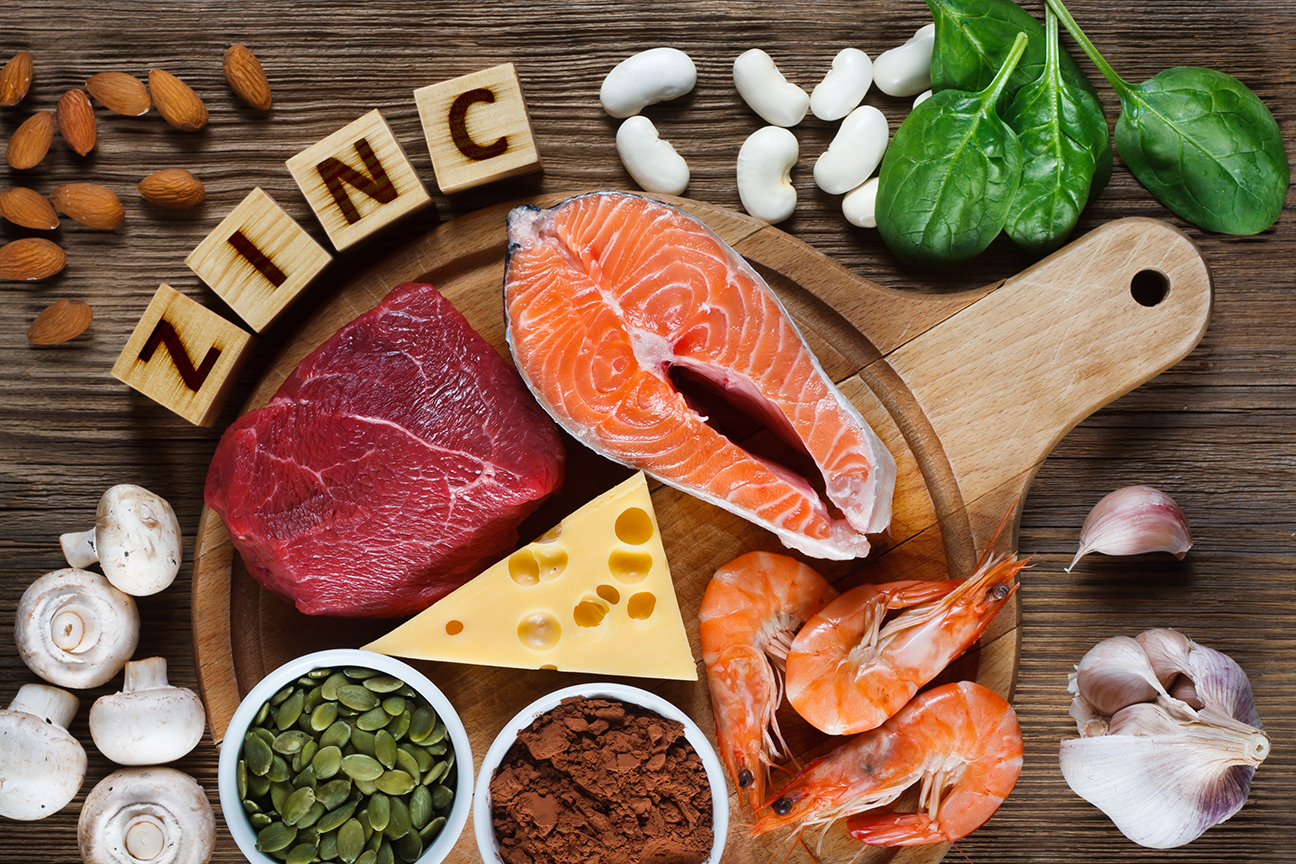
The importance of zinc for babies
Children who lack zinc may suffer from developmental defects and deformities, which makes this vital nutrient important in every diet, and it is also necessary for the proper growth and development of the reproductive organs in children, and zinc for infants is one of the micronutrients that play an important role in their growth and strengthening the organ immunity, and in this blog we present to you the importance of zinc for infants, in addition to a list of foods rich in zinc that you can include in your child's diet, and the best vitamins that he needs at this age.
Benefits of zinc for babies
Supports Immune Health: Your baby's immune system is his own internal defense mechanism, designed to help ward off unwanted microbes and germs. Zinc helps support this, and strengthens the baby's immune system.
An antioxidant: It helps reduce the formation of free radicals inside your little one's body, and it helps prevent these free radicals from damaging the body's cells.
Supports eye health: This essential mineral also helps maintain your child's healthy eyesight and eye health.
Supports skin health: Zinc helps maintain healthy skin, this includes supporting your little one's skin for regeneration, maintaining skin structure, and helping to heal light wounds.
Supporting nervous system function: Zinc has an important role in maintaining nerve conduction, maintaining cognitive function, as well as aiding healthy growth and development.
Natural zinc sources
In order for your baby to get these benefits, you can increase the zinc in his diet through natural food sources, and if your baby is in his first months, do not forget to eat these foods to get the benefits of zinc to him through breastfeeding:
1. Red meat (chicken, beef, etc.)
2. Oysters
3. Nuts
4. Mushrooms
5. Whole wheat grains
6. Potatoes
7. Dairy products
8. Eggs
9. Beans
10. Legumes
If your infant suffers from a deficiency in zinc, the doctor may prescribe medical zinc supplements for him, and if you are wondering about the best vitamins for your infant, breast milk is the best food for infants, especially newborns, as much as it may contain nutrition and antibodies, but usually doctors recommend additional supplements for infants, namely:
Vitamin D and Vitamin D3: Both are responsible for good bone growth, sunlight is one of the options, but it is better for children not to be exposed to sunlight for a long time, so if your child starts eating foods, diet options such as eggs and fish help your baby to get rich in Vitamin D.
Vitamin A: Vitamin A can be easily found in fruits and vegetables such as carrots, mangoes, sweet potatoes and dark green vegetables. It plays an important role in developing eyes, strengthening the immune system and maintaining skin.
Vitamin C: One of the easiest vitamins that must be obtained and maintained at a good level in the body. Most children get the necessary amount of food when they start eating, because many fruits and vegetables such as broccoli, peppers, tomatoes, kiwi, oranges, lemons and others contain vitamin C in large quantities.
Iron: A child's growth requires iron in very large quantities, and any lack of it can cause physical problems such as iron deficiency anemia in infants in addition to behavioral problems and delays in healthy development. Good nutrition can help give your child the required amount, if your baby is born early he may need iron supplements, regardless of whether his diet is appropriate or not.
Docosahexaenoicacid (DHA): is one of the essential elements that directly work on the development of the brain and eyesight, and this can be easily transferred to the child through breast milk if the mother ensures the presence of nutrients rich in it in her diet, this is usually found in meat.
Vitamin K: The American Academy of Pediatrics recommends that all babies receive a one-time injection of vitamin K shortly after birth to reduce the risk of bleeding. Vitamin K is necessary for our bodies to activate certain molecules that help blood to clot.
Vitamin B12: Maintains the health of the body’s nerves and blood cells and helps the formation of DNA (the genetic material in all cells) Vitamin B12 deficiency can cause a type of anemia called megaloblastic anemia that makes children tired and weak.
